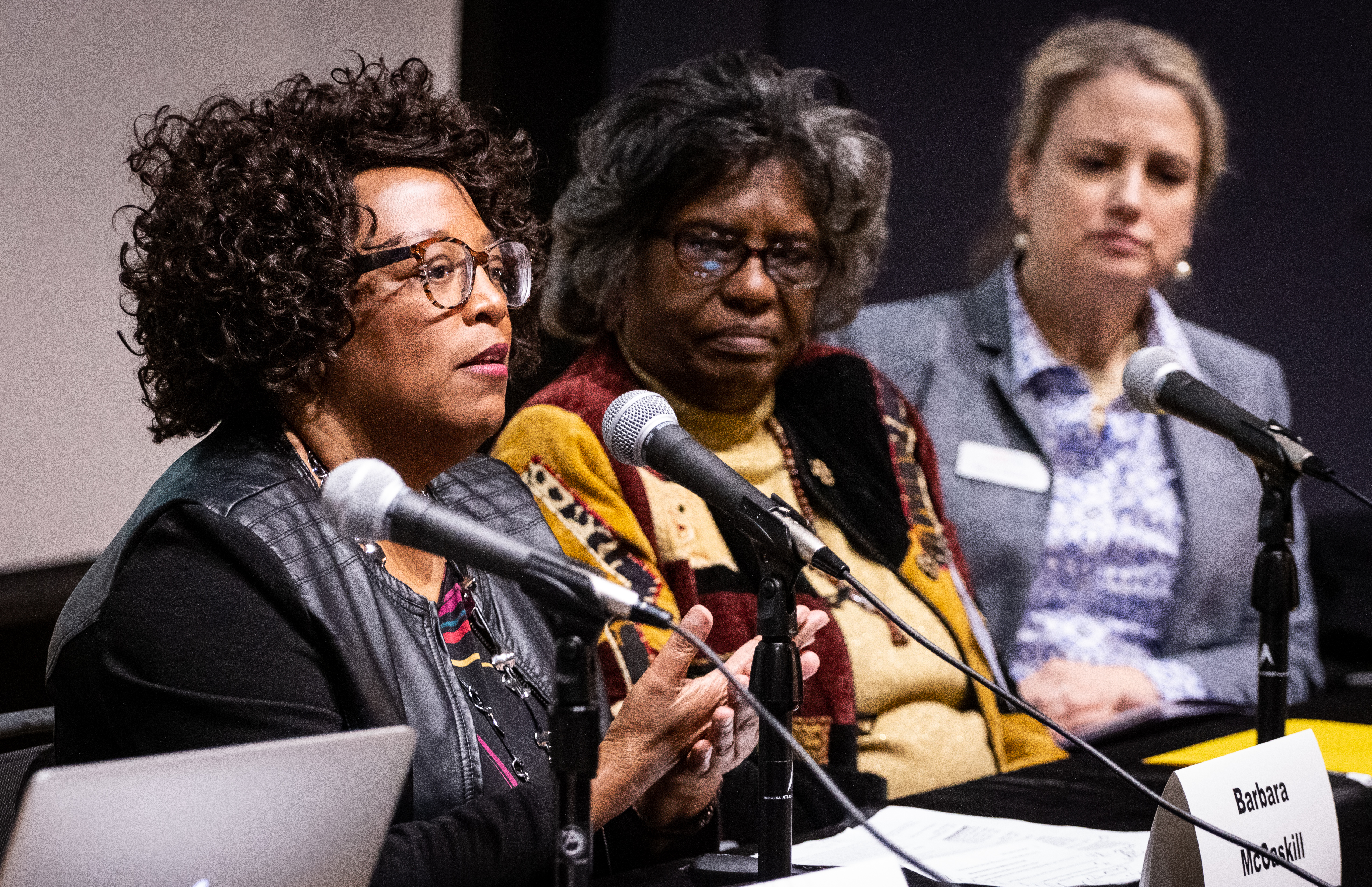UGA hosted the inaugural Georgia Humanities Symposium on March 8, providing a platform to discuss the public humanities with researchers and academics from across the state, including representatives from Emory University, the Georgia Institute of Technology and Morehouse College.
The event, part of the Global Georgia Initiative of the Willson Center for Humanities and Arts and co-hosted by Georgia Humanities, brought together about 80 humanities research leaders at the state, regional and national levels, including representatives from the National Humanities Alliance and the Consortium for Humanities Centers and Institutes. This was the first of three annual meetings designed for sharing experiences of projects, grants and innovations in humanities research and teaching.
“It’s critical in the state of Georgia that we get to know each other better,” said Nicholas Allen, Franklin Professor of English, Willson Center director and founder of the Global Georgia Initiative. “It’s a tremendously rich place, with tremendously rich and complicated cultures, and the humanities do the work of engaging with the diversity of voices that I think no other set of disciplines does.”
The symposium is one facet of the Global Georgia Initiative’s expansion, made possible by a $500,000 grant from The Andrew W. Mellon Foundation.
During the event, three panels of experts discussed the state of the humanities in Georgia, exploring what works and what doesn’t, making connections within communities and considering what the future holds.
Ann McCleary is co-director of the West Georgia Textile Heritage Trail, a project that highlights historic communities that played a vital regional and sometimes national role in the cotton, hosiery, apparel, chenille and carpet industries. She found that not all communities were ready to acknowledge all of their history.
“We really want to delve into the nitty gritty of this industry, but it’s hard because people are sometimes afraid to talk about it,” said McCleary, also a professor at the University of West Georgia.
Although challenges remain, Allen is optimistic about the future of the humanities in Georgia, and he left the attendees with a question to ponder.
“What can we do not just today but over the next two years to make a real change in our own communities and in our institutions?” he asked.


